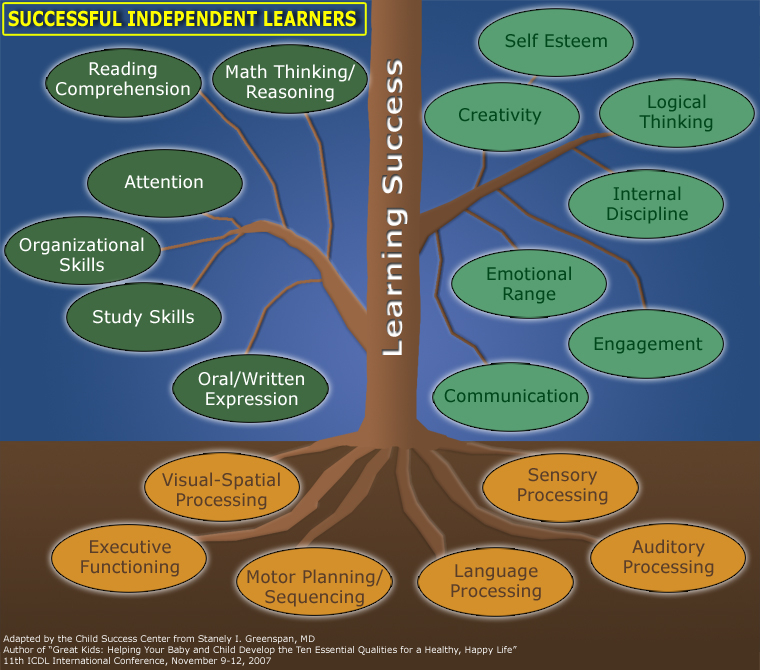Sensory Integration & the Learning Tree Model
Learning success is a tree with many branches that has its roots in basic neurological processes. Through sensory integration, our brains process and organize the information taken in through the senses (taste, sight, hearing, touch, smell, movement, gravity, and position) and integrate this information for use.
Sensory integration enables us to act appropriately within our environment to successfully perform increasingly complex, goal-directed actions. It controls motor skill development, focus and attention, and social interaction. This integration of the senses that occurs through a child’s movement, talking, and playing, creates the foundation for reading, writing, and successful behavior.
Children with sensory processing disorders often struggle to process the world and build the skills needed for school success and childhood accomplishment. These difficulties put children with SPD at high risk for many emotional, social, and educational problems, including difficulty making friends or being a part of a group, poor self-esteem, and academic failure. It may cause them to be labeled clumsy, uncooperative, belligerent, disruptive, or “out of control.” Anxiety, depression, aggression, or other behavior problems can follow.
Sensory Integration Developmental Checklist



